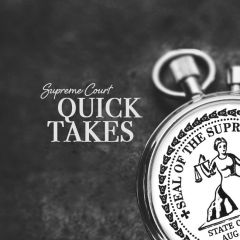Enter the ISBA’s 2023 Member Appreciation Month Instagram Contest
Work-life balance is important, now more than ever. For the ISBA’s Member Appreciation Month Instagram contest, we want you to share a photo of your favorite spot to take a work break for a chance to win a $100 Visa gift card.


